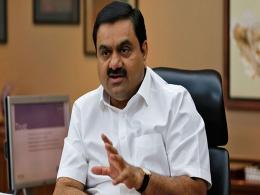Year 2012 has been much more challenging for PEs than the previous year as exits improved but deals slipped. India's economy grew at its slowest pace in nine years, the rupee is the worst performing currency in Asia this year, inflation remains high and industrial production has stalled. The economic problems were compounded by regulatory uncertainties related to measures like GAAR (General Anti Avoidance Rules).
This has downgraded India as an asset class among LPs and has reflected on fundraising, forcing PEs to reassess their investment strategies like focusing on buyout or mezzanine deals and on small-town companies. PE dollars have increasingly shifted from infrastructure to consumption driven plays.
VCCircle spots some trends which have dominated PE/VC markets in 2012.
Infra out of favour, PEs bet on consumption plays
Infrastructure accounted for most of the deal value in the previous two years as power dominated 2010 and transportation and renewable energy accounted for a bulk of deal value in 2011. There were only two big deals of over $100 million, one in Ashoka Concessions and another in Continuum Energy.
Instead, PEs focused on various facets of India's consumption economy. While investors like IDFC Alternatives and Rabo Equity Advisors took exposure to the dairy sector, PEs like Everstone Capital, SAIF Partners, India Equity Partners and New Silk Route have set up platforms to invest in restaurants.
PEs also invested in FMCG and personal care products firms, with $100 million plus deals in companies like Godrej Consumer Products and Marico besides smaller investments in companies like Vishal Personal Care Products and Enhance Aesthetic.
Divestitures drive buyout deals
Buyouts or control deals are high on the agenda of PE firms, with most India-dedicated funds looking at such deals. While some of these deals were driven by small to mid-sized companies looking to reach the next stage, a lot of them are also being driven divestitures by Indian and overseas corporates.
Buyouts are expected to increase as more new fund managers like Keedara Capital, Arth Capital and CapAleph have control deals as their focus strategies.
Some large deals include Thomas Cook and TNT divesting their India operations to Fairbridge Capital and India Equity Partners, respectively. In another large deal, Kishore Biyani's Future Group sold Capital First to Warburg Pincus. Reliance Mediaworks also sold its Malaysian multiplex operations to private equity firm Navis Capital.
Some of the recent deals include Samara Capital buying majority in financial news services company NewsWire18 Ltd from media conglomerate Network18 Group and Ambit Pragma buying 100 per cent stake in Neo Anurena Tristar Food Products.
PE firms start looking beyond IPOs for exits
PE investors have started to look beyond capital markets for exits as they increasingly explore secondary transactions and M&A deals. There were 137 exit transactions worth $4.3 billion in 2012, compared with 115 deals worth $2.87 billion in 2011. The value of exit transactions in 2012 is also close to the 2010 numbers of $4.58 billion, which was a record year for exits.
Among exit deals, there was a 50 per cent increase in exits through M&A transactions, while there were also several large secondary deals. Several PE firms are targeting this secondary opportunity as many of the investments made in 2006-07 are expected to come under pressure for exits starting 2013 as fund life starts coming to an end.
Venture capital fundraising hits a record high
A record amount of over $1 billion has been added as ‘dry powder’ over the past 12-14 months by India-focused venture capital funds. This, even as VCs like Intel Capital, IDG Ventures India and Sequoia Capital India are expected to unveil new India funds in 2013.
This shows the appetite of limited partners (LPs) to bet on more emerging companies from India, especially those who are increasingly developing products or services for a global market, even as larger, growth capital-chasing private equity firms have faced mixed response to raising new funds from international LPs.
Some firms that closed new funds this year include Nexus Venture Partners, Helion Venture Partners and Kalaari Capital.
“Most LPs are extremely negative about investing in India. But within the constraints that they find here, they see good opportunities in early-stage, innovative companies,†said Naren Gupta of Nexus Venture Partners in a recent interview with VCCircle.
“There is a bigger negative sentiment about family-run businesses. But LPs know that entrepreneurs in India are just as smart as anywhere else and they can build big global companies,†he added.
Startup ecosystem matures with accelerators, angels
“A lot of capital is available for early-stage companies as the Indian startup ecosystem is now falling into place,†said Sasha Mirchandani, founder of the early-stage VC firm Kae Capital.
While 4-5 years ago, there were only a handful of investors around, but now startups can choose from a number of accelerators, incubators, seed funds, super angels and angel networks, as well as venture capital funds.
Within the country, there are key accelerators like VentureNursery, The Hatch and Morpheus Venture Partners; incubators like Srijan Capital and AngelPrime; seed funds including Seeders Venture Capital and IncuCapital, among others; and angel networks like India Angel Network, Bangalore Angels and Mumbai Angels.
Global angel investors have also set up shop in India. Silicon Valley venture capitalist Dave McClure, who runs an
accelerator and seed investment fund called 500 Startups, set up an India office earlier this year and is currently raising a $5 million fund for local ventures. Again, Bangalore-based mobile payment services provider Ezetap Mobile Solutions attracted funding from Peter Thiel (co-founder of PayPal and one of the early investors in Facebook) David Sacks (Yammer founder), former Facebook executive Chamath Palihapitiya’s Social+Capital Partnership and Nicolas Berggruen.
PEs struggle in fundraising, differentiated stories sell
Fundraising remains tough as a number of limited partners (LPs) have moved India out of their mandates or have adapted a wait-and-watch approach. Most funds that achieved an interim or final close were either differentiated stories with strong backing or PE funds who have achieved strong exit record. This comes even as new fund managers are struggling to get traction.
Some mid market funds which saw an interim close this year include BanyanTree Growth Capital, which makes structured investments; Motilal Oswal's India Business Excellence Fund-II, which saw two exits and has strong focus on Tier-II,III cities and Ambit Pragma Fund II, which is focused on SME buyout deals.
Even some sector focused funds, like Kaizen Education Fund and Global Environment Fund announced the final close of their funds in 2012.
The most successful fundraising was the $510 million raised for sixth fund by ChrysCapital, which simultaneously also completed a management transition with its founder Ashish Dhawan retiring.
New fund managers wait for 2013
After the successful fundraising by Ajay Relan's CX Partners and Renuka Ramnath's Multiples, new fund managers have struggled. Former Warburg Pincus MD Rajesh Khanna's ceased fundraising, others like PR Srinivasan's Exponentia Capital haven't also had much luck on the trail.
There are several other funds which are now out in the market. Former ICICI Venture executive director Sumit Chandwani and erstwhile India head of Hong Kong-based ADM Capital Anish Modi launched Arth Capital, targeting $300 million. LotusPool, set up by former Actis and ePlanet Capital execs, is also seeking $250 million.
The only new fund that has seen success is former Temasek India head Manish Kejriwal's Kedaara Capital, which is backed by global private equity major Clayton Dubilier & Rice LLC. The fund got commitment from Ontario Teachers' Pension Plan (OTPP) and has made a first close.
Most fund managers are awaiting 2013, when LPs look to make fresh allocations, but there is likely to be more consolidation here.
PE investments in healthcare reach record high
PE investments in healthcare have reached a record high on back of several large investments in companies like Manipal Hospital, Vasan Healthcare, CARE Hospital, DM Healthcare and Nova Medical. The year saw 34 deals worth $835 million across healthcare equipment and services, according to VCCEdge, the data research platform of VCCircle. This is both a record in terms of volume and value.
The Indian healthcare market is likely to double by 2015 and reach $100 billion, says ratings agency Fitch. The opportunity in India, compared to its Asian peers, remains large as in terms of per capita spending, India’s $43 falls far behind Sri Lanka’s $87, China’s $155 and Thailand’s $261.
Also read
(Edited by Prem Udayabhanu)






